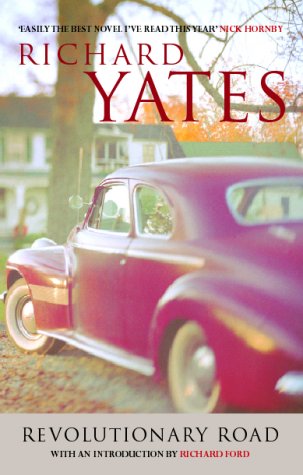Little, Brown & Co.,
Boston, 1961. Paperback available at Chapters/Indigo, $19.27, here.
Great
literature is always relevant.
The
oldest known fictional story, created 4,700 years ago, is an adventure-filled
mythic poem centred on a king, Glilgamesh, who goes on a classic hero’s
journey. It's worthy of any bestsellers list. As long as it’s a good, there
will always be readers, no matter a story’s age or origins.
We are story-loving
creatures. Long before there were computers
that allowed a writer to spell-check a whole manuscript in minutes, there were cave
dwellers recording their lives on cave walls.
People told stories around the hearths, handing down stories from
generation to generation. Ancient Greeks and Egyptians carved their stories
into their buildings.
As time marched on, we developed better ways to write and
circulate writing to the public. We still
love the stories of the ancients and handed-down tales that are the basis of
our modern fairy tales. The themes and
characters of those stories engage the imagination just as easily today as they
did thousands of years ago. The epic
poems of Homer, The Iliad and The Odyssey, still inspire readers and
writers today, as do the works of Shakespeare, Cervantes, Dickens, Twain,
Austen, and Dostoyevsky, to name a few.
It doesn’t always follow that
a classic story will appeal to every reader, but there’s a reason they became
classic.
In this spirit, I read the
Revolutionary Road by Robert
Yates. First published in 1961, the novel was adapted into a two-thumbs up film in 2008, starring movie power couple Kate
Winslet and Leonardo DiCaprio. The movie
propelled the novel into renewed fame.
I found it on Stephen King’s book list.
I hadn’t seen the movie, so I could approach the novel with no
preconceived ideas other than the expectation of it being educational,
entertaining and influential, as recommended by King.
A few pages into the book
and I tossed it aside, doubting King’s taste. The primary characters, April and
Frank Wheeler, were unsympathetic and immature.
I continued reading only because I enjoyed Yate’s use of language. It sure wasn’t because of the
characters. Further on into the book, it
felt like a typical soap opera.
Melodrama at its finest with love/hate relationships, arguments,
unrequited love, sexual tension, extensive alcohol intake, an inmate from a
mental hospital, adultery, and misunderstandings the average child could
resolve.
Then it grew uncomfortable.
Yates found my soft underbelly. I am no
different from the characters in Revolutionary
Road.
 |
| Robert Yates in 1960 |
In the novel, April
Wheeler desires to escape her empty, hollow suburban life and reinvent her
family by moving to Paris. While not as
miserable as April, I too once felt as if I were running on a hamster wheel,
everything the same and no expectation of change. It took a lot of courage and time, but unlike
the Wheelers, I fulfilled my dream of reinvention. I quit my job and moved
across the country to begin the next phase of my life.
With this realization, I
discovered I had sympathy for the characters and could easily empathize with
their misery. Most readers will commiserate with the Wheelers, just as we can
understand Achilles’ anger and pride in The
Iliad, the sorrow and guilt of Friar Lawrence in Romeo and Juliet or Robert Langdon’s search for the truth in The DaVinci Code.
I am inspired now to
return to novels I read years ago and did not appreciate. It’s likely that I
needed some maturity to understand those stories. I will continue on with
suggested readings whether the recommended book this week’s #1 New York Times bestseller
list or the 400-year-old Don Quixote.
What drives humanity hasn’t changed in all the years we’ve been telling
stories. A well-written book will always be worth reading.
***
Note: Quick Brown Fox welcomes your book reviews – or any kind of review of anything, of anywhere or of anybody. If you want to review your favourite coffee shops or libraries, babysitters or lovers (no real names please), go for it. See examples of book reviews here (and scroll down); other reviews here (and scroll down). Read about how to write a book review here.
QBF also welcomes essays about a favourite book or about your experience of reading or writing. To get a taste of what other writers have done, see here and scroll down).
Include a short bio at the end of your piece and attach a photo of yourself if you have one that’s okay.
Jennifer
Reichow knew as a child she was
going to university and be a writer. As so often happens, life interrupted her
plan. But now that she’s just retired from a fulfilling nursing career, she’s
realizing her dream of becoming a writer. It feels like coming home.
See Brian Henry's schedule here, including
writing workshops, weekly online writing classes, and weekend retreats in
Alliston, Bolton, Barrie, Brampton, Burlington, Caledon, Collingwood,
Georgetown, Georgina, Guelph, Hamilton, Jackson’s Point, Kingston,
Kitchener-Waterloo, London, Midland, Mississauga, Oakville, Ottawa,
Peterborough, St. Catharines, Southampton, Sudbury, Toronto, Windsor,
Woodstock, Halton, Muskoka, Peel, Simcoe, York Region, the GTA, Ontario and
beyond.




No comments:
Post a Comment
Note: Only a member of this blog may post a comment.